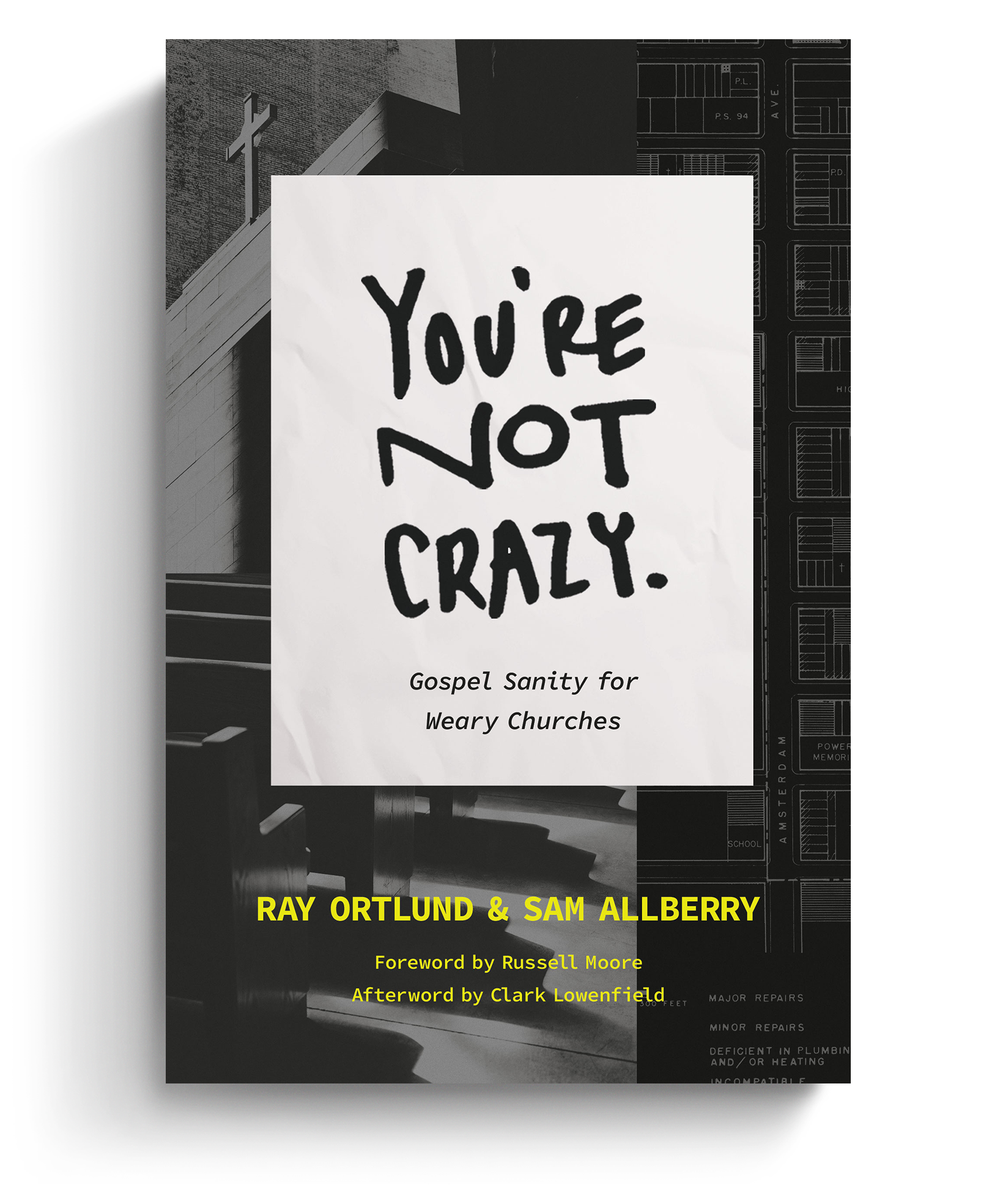For more resources on same-sex marriage and homosexuality, visit Equip, a joint initiative of The Gospel Coalition and the Ethics and Religious Liberty Commission of the Southern Baptist Convention to provide a broad range of resources on homosexuality and same-sex marriage issues to prepare your church for this changing culture. This article is available in Spanish.
The Bible tells us that the king of Israel once wanted to hear from the prophets, as to whether he would be victorious over his enemies. All the court prophets told him exactly what he wanted to hear. Yet the king of Judah, wisely, asked whether there might be another voice to hear from, and Israel’s king said that, yes, there was, but that he hated this prophet “because he never prophesies good concerning me” (1 Kings 22:8).
Once found, this prophet refused to speak the consensus word the king wanted to hear. “As the LORD lives, what the LORD says to me, that I will speak” (1 Kings 22:14). And, as it turned out, it was a hard word.
When it comes to what people want to hear, the church faces a similar situation as we look to the future of marriage in this country. Many want the sort of prophetic witness that will spin the situation to look favorable, regardless of whether that favor is from the Lord or in touch with reality.
Some people want a court of prophets who will take a surgeon’s scalpel to the Word of God. They want those who will say, in light of what the Bible clearly calls immorality, “Has God really said?” Following the trajectory of every old liberalism of the past, they want to do with a Christian sexual ethic what the old liberals did with the virgin birth—claim that contemporary people just won’t have this, and if we want to rescue Christianity, this will have to go overboard. All the while they’ll tell us they’re doing it for the children (or for the Millennials).
Preaching a Gospel That Doesn’t Save
This is infidelity to the gospel we’ve received. First, no one refusing to repent of sin—be it homosexuality or fornication or anything else—will inherit the kingdom of God (1 Cor. 6:9–10). This strategy leaves people in condemnation before the judgment seat of Christ, without reconciliation and without hope.
Second, it doesn’t even work. Look at the empty cathedrals of the Episcopal Church, the vacated pews of the Presbyterian Church (U.S.A.), and right down the line. Let me be clear. Even if embracing same-sex marriage—or any other endorsement of what the Bible calls sexual immorality—“worked” in church building, we still wouldn’t do it. If we have to choose between Jesus and Millennials, we choose Jesus. But history shows us that those who want a different Jesus—the one who says, “Do whatever you want with your body, it’s okay by me”—don’t want Christianity at all.
But there will be those who want prophets who will say that the gospel doesn’t call for repentance, or at least not repentance from this sin. These prophets will apply a selective universalism that denies that judgment is coming, or that the blood of Christ is needed. But these prophets don’t speak for God. And we have no one to blame but ourselves since, for too long, too many of us have tolerated among us those who have substituted a cheap and easy false gospel for the gospel of Jesus Christ. Too many have been called gospel preachers who preach decision without faith, regeneration without repentance, justification without lordship, deliverance by walking an aisle but without carrying a cross. That gospel is different from the one Jesus and his apostles delivered to us. That gospel doesn’t save.
So when these prophets emerge to tell people they can stay in their sins and still be saved, we must thunder back with the old gospel that calls all of us to repentance and to cross-bearing, the gospel that calls sin what it is in order to call grace what it is. J. Gresham Machen warned us that our Lord Jesus himself never attempted to preach the gospel to the righteous but only to sinners. Those who follow him must start by acknowledging themselves to be in need of mercy, to be in need of grace that can pardon and cleanse within.
Marriage Revolution Is Real
There’s another form of court prophet of these times, too. This one has no problem identifying homosexuality as sin. He may do so with all sorts of bluster and outrage, but he still does what court prophets always do—he speaks a word that people want to hear. Some people want to hear that sexual immorality is moral after all, and other people want to hear that same-sex marriage is simply a matter of some elites on the coasts of the country. This prophet implies that if we just sign checks to the right radio talk-show hosts, and have a good election cycle or two, we’ll be right back where we were, back when carpets were shag and marriages were strong. I don’t know anyone in any advocacy organization in Washington, D.C.—and there are many fighting the good fight on this one—who is saying that. As a matter of fact, the organizations closest to the ground know just how dark the hour is.
In some form or another, your church will have to address the marriage revolution. This includes thinking through steps that churches should take to protect themselves and their confessions of faith from legal action. But it also includes being honest about our congregations. It’s simply not the case that homosexuality, same-sex attraction, transgenderism, and so on are issues in “big” churches or “city” churches. In backwood rural churches of Appalachia or the mythological Bible Belt of the American South, congregations have to know how to faithfully and compassionately minister to the sexual revolution’s refugees. Churches that aren’t addressing these issues in their Sunday gatherings are ignoring the Great Commission.
That’s why this isn’t merely an issue of an election cycle or two. There is an urgent need for conscience protections for those who dissent from the High Church of the Sexual Revolution. Look at the way the CEO of Mozilla was hounded out of office simply for supporting a ballot measure defining marriage as between one man and one woman. Look at the way Baronnelle Stutzman was accosted by her own government, not for refusing services to gay customers (she served many gay clients for years) but for refusing to agree with two customers, and the state, about a same-sex wedding.
If the church doesn’t read the signs of the times, we will be right where we evangelicals were after Roe v. Wade—caught flat-footed and unprepared. Thankfully, many Christian leaders, and many outside the evangelical tradition, became bold leaders in the cause of protecting unborn life. We owe much today to their courage.
Lessons from the Pro-Life Movement
So what should we do? Precisely what we should have done before and after Roe. We should recognize where the courts and the culture are, and we should work for justice. That means not simply assuming most people agree with us on marriage. We must articulate, both in and out of the church, why marriage matters, and why its definition isn’t infinitely elastic.
We must—like the pro-life movement has done—seek not only to engage our base, those who already agree with us, but to persuade those who don’t. That doesn’t mean less talk about marriage and sexuality but more—and not just in soundbytes and slogans but in a robust theology of why sexual complementarity and the one-flesh union are rooted in the mystery of the gospel (Eph. 5:22–33). We must—also like the pro-life movement—understand the danger of a Supreme Court that won’t will into existence constitutional planks.
Above all, we must prepare people for what the future holds, when Christian beliefs about marriage and sexuality aren’t part of the cultural consensus but are seen to be strange and freakish and even subversive. If our people assume that everything goes back to normal with the right President and a quick constitutional amendment, they are not being equipped for a world that views evangelical Protestants and traditional Roman Catholics and Orthodox Jews and others as bigots and freaks.
Jesus told us we would have hard times. He never promised us a prosperity gospel. He said we would face opposition, but he said he would be with us. If we are going to be faithful to his gospel, we must preach repentance—even when that repentance is culturally unwelcome. And we must preach that any sinner can be forgiven through the blood of Jesus Christ. That means courage, and that means kindness. Sexual revolutionaries will hate the repentance. Buffoonish heretics, who want only to vent paranoia and rally their troops, will hate the kindness. So be it.
Be Ready
Our churches must be ready to call out the revisionists who wish to do away with a Christian sexual ethic. And we must be ready to call out those who tell us acknowledging the signs of the times is forbidden, and we should just keep doing what we’ve been doing. An issue this culturally powerful cannot be addressed by a halfway-gospel or by talk-radio sloganeering.
The marriage revolution around us means we must do a better job articulating a theology of marriage to our people, as well as a theology of suffering and marginalization. It means we must do a better job articulating to those on the outside why children need both a Mom and a Dad, not just “parents,” and why marriage isn’t simply a matter of court decree. It means we must start teaching our children about marriage “from the beginning” as male and female when they’re in Sunday school. It means we may have to decide if and when the day will come in which we will refuse to sign the state’s marriage licenses.
The long-term prospects for marriage are good. Marriage is resilient, and the sexual revolution always disappoints. It’s true these are dark days for the culture of marriage. But dark days are exactly what our gospel is for. No day was darker than the day the Son of God died in Palestine on a criminal’s cross. We are here because that dark day was not the end of the story. And because it wasn’t the end then, it will never be the end now.
Are You a Frustrated, Weary Pastor?
 Being a pastor is hard. Whether it’s relational difficulties in the congregation, growing opposition toward the church as an institution, or just the struggle to continue in ministry with joy and faithfulness, the pressure on leaders can be truly overwhelming. It’s no surprise pastors are burned out, tempted to give up, or thinking they’re going crazy.
Being a pastor is hard. Whether it’s relational difficulties in the congregation, growing opposition toward the church as an institution, or just the struggle to continue in ministry with joy and faithfulness, the pressure on leaders can be truly overwhelming. It’s no surprise pastors are burned out, tempted to give up, or thinking they’re going crazy.
In ‘You’re Not Crazy: Gospel Sanity for Weary Churches,’ seasoned pastors Ray Ortlund and Sam Allberry help weary leaders renew their love for ministry by equipping them to build a gospel-centered culture into every aspect of their churches.
We’re delighted to offer this ebook to you for FREE today. Click on this link to get instant access to a resource that will help you cultivate a healthier gospel culture in your church and in yourself.

































